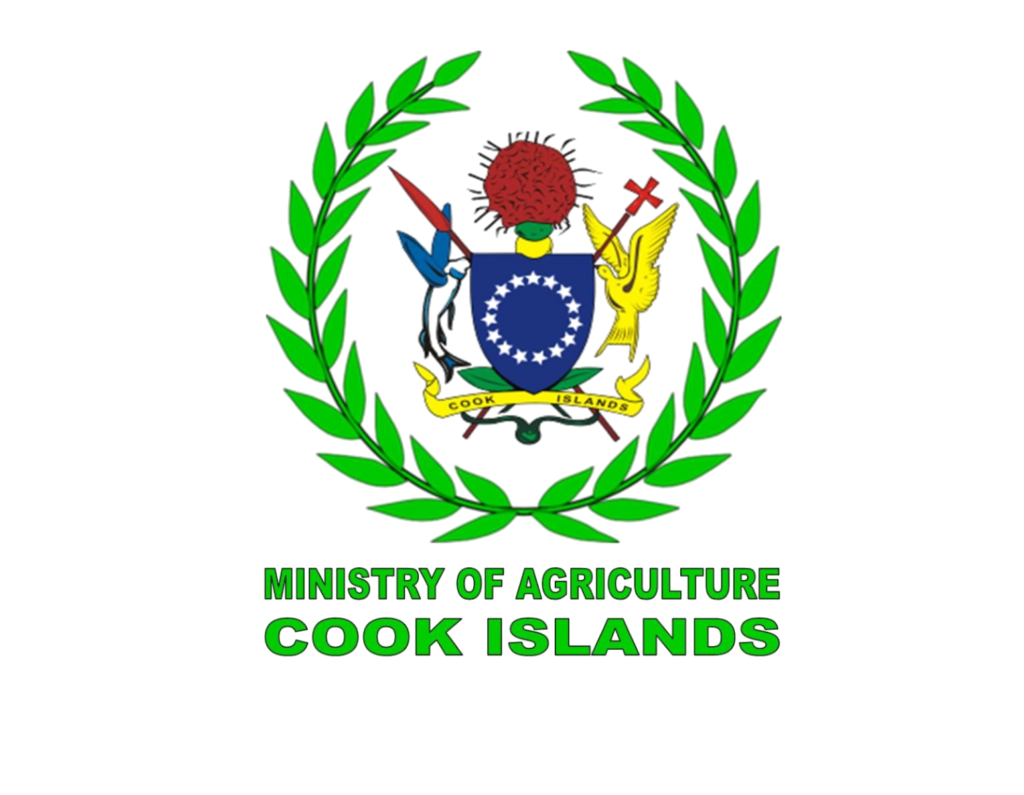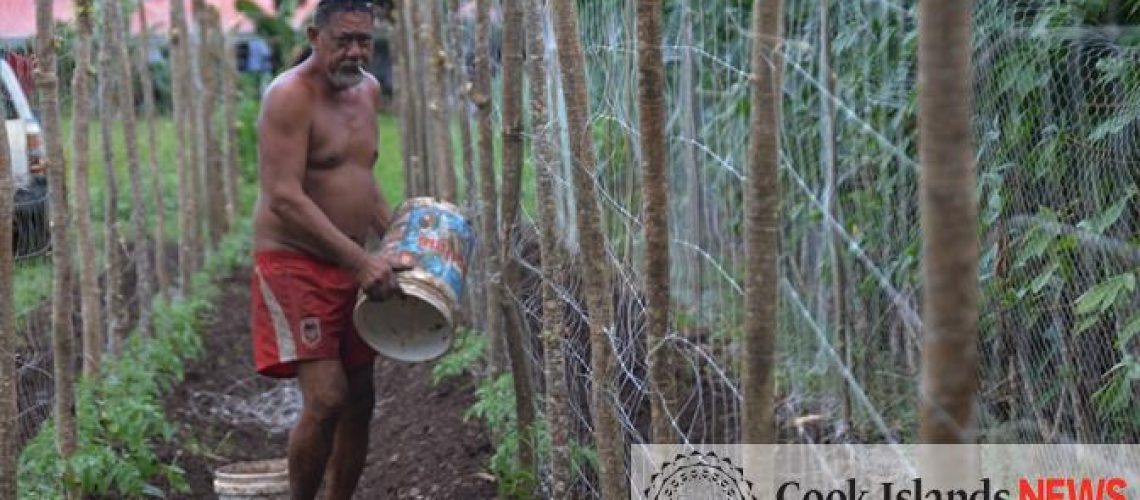Life begins the day you start a garden – Chinese proverb

There is a real excitement as Cook Islands communities dig and refresh their fruit and vege gardens – but also the hope that we may once more sell them to visitors and overseas.
Nga Kino was not a farmer all his life.
He used to work at Cook Islands General Transport supporting his family and children.
Then two and half years ago, he decided to take on farming as full-time job, earning income for himself and his future.
Farming was once the backbone of Cook Islands economy, the 50-year-old says. It was during that time that it was his tomato plantation took him to New Zealand – the income was good.
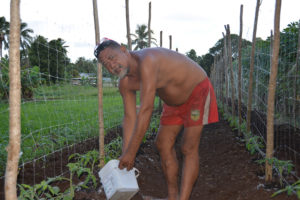
He later opted to plant only taro that he exported to New Zealand and Australia, to families and friends who made orders for funerals and wedding, or any special event.
“I use to plant taro, harvest and export on a weekly basis, it never stopped and it was good.”
But since the Covid-19 slowdown his sole business has not been running as it used to. So now, he and his partner have opted to return to planting tomatoes.
First government asked people to farm, then political leaders shifted their dependence to tourism. “Now they want us to plant again – but now we need buyers.”
“I wanted to plant something different, so it was back to tomatoes, it been 26 years since I did tomato farming and this is like, I am learning again.”
Kino is not only investing what little money his got left on tomato seeds, but has also invested in watermelons, lettuce and bok choy.
“When this happened, my taro farming has paused. It has become slow even though we can sell locally.”
He said they have also sold most to hotels and restaurants, but now farmers who have invested in farming as a fulltime income are starting to face the brunt of not being able to sell their supply.
He said for most, it was hotels and restaurants that farmers could depend on, and now it is the local market.
“It is, go local for now. We don’t know how long this will go on for.”
Kino says he has also given outrukau (taro shoots) for replanting around Titikaveka.
“For us Cook Islanders we are okay, we are surviving on the land, but we feel sorry for the foreigners who have lost their jobs in hotels and have been earning less income now.
“When we have land, we are okay.”
Kino encourages upcoming backyard farmers to not only plant during this Covid-19 lockdown but to continue for their own household needs.
Last month the Ministry of Agriculture introduced a support package for growers and home gardeners.
Secretary for Agriculture Temarama Anguna-Kamana is pleased with the response from families and communities.
“Increasing the number of households that grow some part of the food they consume will have health benefits as the food is more nutritional and less processed,” she says. “And having homegrown products is also better for family budgets as the food bill will be cheaper.”
She recommends they continue to plant: “Each household is encouraged to grow some fruit or vegetables that will contribute to their household diet.”
Households should aim to have at least 10 species around their homes that will grow and produce with minimal input from the household like pawpaw, banana, coconut, lemon, raparapa, rukau viti, oporo, vikavakava, avocado, breadfruit, mango.
The ministry is looking to introduce some training for home gardeners, and they have a “practical vegetable production handbook” for sale.
The Fijian Community has been given land to farm on, through Tupapa MP George Maggie and landowner Papa Ta Tangiiti.
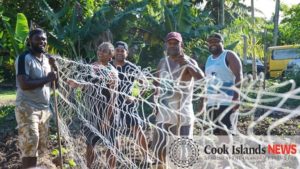
Community vice-president Savenaca Tukitoba says the project has been going well, and the Ministry of Agriculture has provided them with seedlings and machinery.
For Leona Bradford, their backyard farm has been a good initiative.
The family has planted rukau viti, avacado’s, pumpkin, cucumber and cabbage.
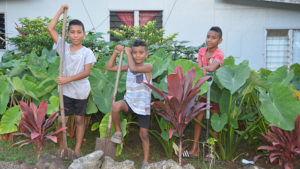
“This is something that has benefited my family, it is healthy and cheaper”
The Bradford family has also started a barter exchange system, depending on what people have to exchange with their harvested pumpkins, some chillies / pepper or rukau.
